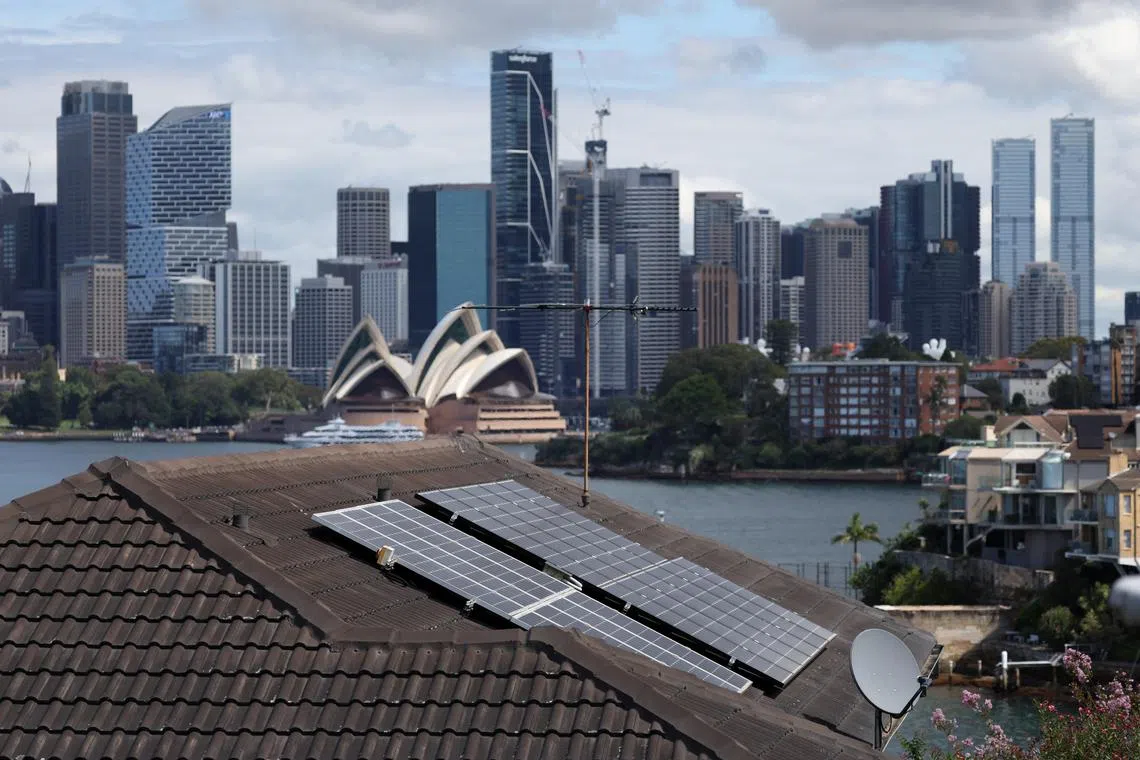Global renewable power capacity falls short of targets despite record growth in 2024: Irena
Sign up now: Get ST's newsletters delivered to your inbox

Solar and wind energy remained the fastest-growing renewables, together accounting for 96.6 per cent of all net renewable additions in 2024.
PHOTO: REUTERS
BERLIN - Global renewable energy capacity registered record growth in 2024 but progress is still falling short of the 2030 renewable capacity target, a report by the International Renewable Energy Agency (Irena) showed on March 26.
About 92.5 per cent of energy capacity added in 2024 came from renewables, at 585 gigawatts (GW), marking record annual growth of 15.1 per cent and lifting total renewables capacity to 4,448 GW. Of this total, 42 per cent is from solar energy, 29 per cent hydropower, 25 per cent from wind and 4 per cent from other renewable energy sources.
However, progress remains below the 11.2 terawatts needed to meet the Paris climate agreement and the global goal of tripling installed renewable energy capacity by 2030, which demands an annual growth rate of 16.6 per cent.
“We also face the same challenges of great regional disparities and the ticking clock, as the 2030 deadline is imminent,” said Irena director-general Francesco La Camera.
Almost 64 per cent of new global renewable capacity was built in China, which alone added 278 GW of solar capacity in 2024, while India added 24.5 GW.
The Group of Seven of the world’s most advanced and industrialised economies accounted for 14.3 per cent while Central America and the Caribbean contributed the least at only 3.2 per cent.
In Asia, including China, total renewable energy capacity reached 2,382 GW in 2024, an increase of 421.5 GW over 2023.
Solar and wind energy remained the fastest-growing renewables, together accounting for 96.6 per cent of all net renewable additions in 2024.
Over three-quarters of the capacity expansion was in solar energy which increased by 32.2 per cent, reaching 1,865 GW, followed by wind energy which grew by 11.1 per cent. REUTERS


